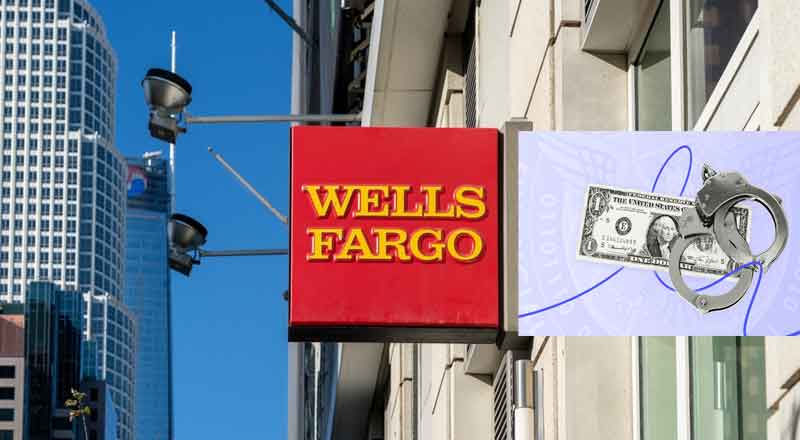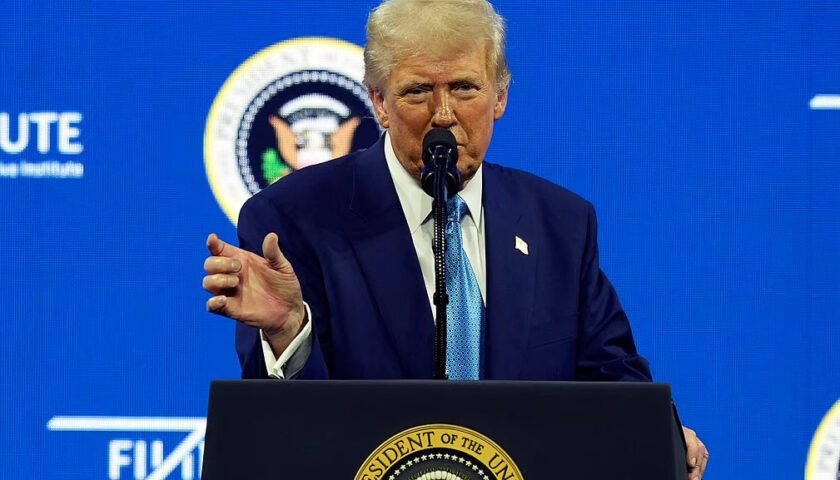Wells Fargo shares experienced a significant decline on Thursday, dropping 4% by the end of the trading day, following revelations from a U.S. banking regulator. The Office of the Comptroller of the Currency (OCC) reported that the bank’s measures to combat money laundering and illegal transactions were inadequate.
This regulatory action further restricts Wells Fargo’s capacity to expand into higher-risk business areas, adding to the challenges the bank has faced since the 2016 fake accounts scandal. The stock had initially fallen by as much as 6.5% before recovering slightly.
The OCC noted that while Wells Fargo was actively working to address the identified issues, it did not impose a fine on the bank. However, it has mandated that Wells Fargo obtain permission before expanding into specific medium or high-risk areas, although the regulator did not specify what those areas are.
In response, Wells Fargo stated its commitment to addressing the concerns outlined in the formal agreement and emphasized its urgency in completing these regulatory commitments alongside other ongoing obligations.
The OCC indicated that Wells Fargo’s internal controls were inadequate for effectively identifying and preventing money laundering and sanctions evasion. Key deficiencies included the bank’s measures to understand customer profiles and flag potentially suspicious transactions.
While specific details were not disclosed by either the OCC or Wells Fargo, the regulator mandated that the bank enhance its internal controls, due diligence procedures, and currency transaction reporting.
This requirement aligns with federal law, which obligates financial institutions to monitor for suspicious activities to help prevent illicit funds from entering the U.S. financial system.
Chris Marinac, director of research at Janney Montgomery Scott, commented on Wells Fargo’s ongoing challenges, noting, “The bank has been going through a clean-up process for years.” He highlighted that the latest action by the OCC underscores the fact that Wells Fargo remains under investigation, with expectations for this scrutiny to persist.
The 2016 fake accounts scandal significantly impacted the bank, resulting in increased regulatory oversight, billions in penalties, and multiple shareholder lawsuits. This ongoing scrutiny illustrates the long-term consequences of the scandal for Wells Fargo’s operations and reputation.
Since taking over in 2019, CEO Charlie Scharf has focused on improving compliance at Wells Fargo. However, the bank remains under a Federal Reserve restriction that limits its assets to $1.95 trillion until regulators determine that its issues have been resolved. Chris Marinac noted that there was earlier optimism about the potential removal of this asset cap, but recent developments indicate that Wells Fargo still has significant work ahead.
Brian Mulberry, a portfolio manager at Zacks Investment Management, which holds Wells Fargo stock, expressed concern that this news further damages the bank’s reputation and could hinder efforts to lift the asset cap due to ongoing regulatory scrutiny.
Conversely, RBC Capital Markets analyst Gerard Cassidy suggested that the latest regulatory agreement, while negative, is unlikely to affect the bank’s chances of lifting the asset cap, as it primarily addresses consumer banking issues rather than money laundering controls.





